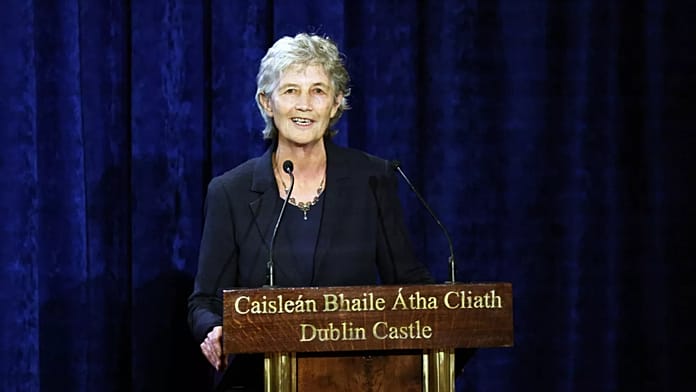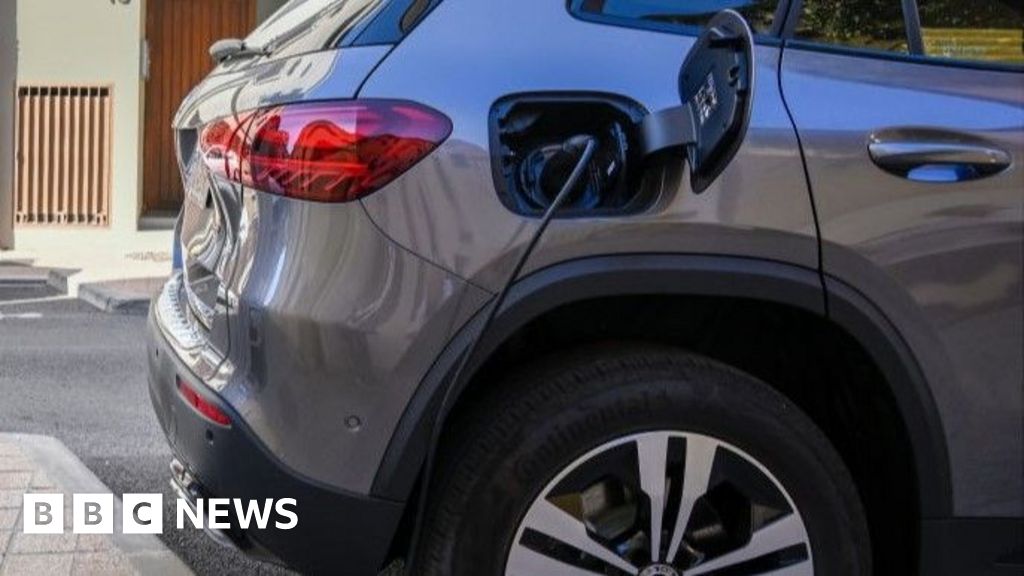Labour's 'double whammy' death tax raid slammed as Rachel Reeves prepares to slash relief
Labour's "double whammy" death tax is coming under fire as more Britons are being pulled into higher brackets or paying new levies, according to new HM Revenue and Customs (HMRC) data.Government inheritance tax (IHT) receipts have reached unprecedented levels, with estates paying an effective rate of 13 per cent for the 2022-23 tax year despite the headline 40 per cent charge.The proportion of estates liable for inheritance tax has climbed to 4.62 per cent, equalling levels last seen before the residential property allowance was implemented.Analysts have noted the extended freeze on inheritance tax allowances is pulling increasing numbers of families into the tax net through fiscal drag, which occurs when thresholds remain at the same level at a time when inflation or wages rising.The standard nil-rate band has remained at £325,000 since 2009, whilst the residence nil-rate band has been frozen at £175,000 since 2020. Both thresholds will stay unchanged until at least 2030.Had these allowances risen with inflation rather than remaining static, couples could currently shield estates worth £1,448,000 from inheritance tax, potentially increasing to approximately £1.6million by the freeze's scheduled end.Instead, the 20-year freeze means couples can only pass on up to £1million tax-free when combining both allowances. Chancellor Rachel Reeves will dramatically curtail inheritance tax exemptions for businesses and farms from April 2026, restricting full relief to the first £1million of qualifying assets.Assets exceeding this threshold will receive only 50 per cent relief, effectively doubling the tax burden on larger family enterprises and agricultural holdings. The reforms will also reduce relief on AIM-listed shares and comparable foreign exchange holdings from complete exemption to 50 per cent.Do you have a money story you’d like to share? Get in touch by emailing money@gbnews.uk.Critics note the restrictions will force many family-owned businesses and farms to reassess succession planning, as estates previously sheltered from inheritance tax will face substantial bills.The most substantial inheritance tax exemption remains transfers between married couples and civil partners, which face no tax liability regardless of value. Business and agricultural property reliefs experienced a 19 per cent surge in value during 2022-23, shielding approximately £5.28billion from inheritance tax.Business property relief alone accounted for £3.34billion across 3,840 estates, making it the second most valuable exemption after spousal transfers. These reliefs currently provide complete protection for qualifying trading company assets and agricultural holdings, preventing forced sales to meet tax obligations.The data found wealthier estates benefit disproportionately from these exemptions, with those valued above £3million typically utilising business and agricultural reliefs to reduce their effective tax rates below the levels paid by smaller estates. Charlene Young, senior pensions and savings expert at AJ Bell, warned that the chancellor's decision to reduce exemptions rather than increase them represents a stark policy shift.She said: "In a double whammy for many estates – the Chancellor also continued the big freeze on both the nil rate band and residence nil rate band until at least 2030.LATEST DEVELOPMENTS:Pension WIN as Britons avoid tax raid on retirement savings - how to claim £4k refund from HMRCPensioners could be owed £4,000 each as HMRC tax refund claims surge past 500,000 - check nowISA alert: Families rush to use little-known inheritance perk that could save thousands from HMRC"Whilst IHT reforms might shatter the plans of families looking to pass on future wealth, the effect of what will be a twenty-year freeze on both key allowances for families is already showing its teeth, with more estates than ever paying IHT."Speaking to Sky News earlier this week, the Chancellor ruled out implementing a wealth tax in the upcoming Autumn Budget and outlined her decision-making when it comes to fiscal policy.Reeves said: "Decisions around tax are decisions that are made at a budget and we'll make those decisions in the appropriate way, but the number-one priority of this government is to grow the economy."And that means bringing more investment into Britain, creating more good jobs paying decent wages here in Britain."

Labour's "double whammy" death tax is coming under fire as more Britons are being pulled into higher brackets or paying new levies, according to new HM Revenue and Customs (HMRC) data.
Government inheritance tax (IHT) receipts have reached unprecedented levels, with estates paying an effective rate of 13 per cent for the 2022-23 tax year despite the headline 40 per cent charge.
The proportion of estates liable for inheritance tax has climbed to 4.62 per cent, equalling levels last seen before the residential property allowance was implemented.
Analysts have noted the extended freeze on inheritance tax allowances is pulling increasing numbers of families into the tax net through fiscal drag, which occurs when thresholds remain at the same level at a time when inflation or wages rising.

The standard nil-rate band has remained at £325,000 since 2009, whilst the residence nil-rate band has been frozen at £175,000 since 2020. Both thresholds will stay unchanged until at least 2030.
Had these allowances risen with inflation rather than remaining static, couples could currently shield estates worth £1,448,000 from inheritance tax, potentially increasing to approximately £1.6million by the freeze's scheduled end.
Instead, the 20-year freeze means couples can only pass on up to £1million tax-free when combining both allowances. Chancellor Rachel Reeves will dramatically curtail inheritance tax exemptions for businesses and farms from April 2026, restricting full relief to the first £1million of qualifying assets.
Assets exceeding this threshold will receive only 50 per cent relief, effectively doubling the tax burden on larger family enterprises and agricultural holdings. The reforms will also reduce relief on AIM-listed shares and comparable foreign exchange holdings from complete exemption to 50 per cent.
Do you have a money story you’d like to share? Get in touch by emailing money@gbnews.uk.

Critics note the restrictions will force many family-owned businesses and farms to reassess succession planning, as estates previously sheltered from inheritance tax will face substantial bills.
The most substantial inheritance tax exemption remains transfers between married couples and civil partners, which face no tax liability regardless of value. Business and agricultural property reliefs experienced a 19 per cent surge in value during 2022-23, shielding approximately £5.28billion from inheritance tax.
Business property relief alone accounted for £3.34billion across 3,840 estates, making it the second most valuable exemption after spousal transfers. These reliefs currently provide complete protection for qualifying trading company assets and agricultural holdings, preventing forced sales to meet tax obligations.
The data found wealthier estates benefit disproportionately from these exemptions, with those valued above £3million typically utilising business and agricultural reliefs to reduce their effective tax rates below the levels paid by smaller estates.
Charlene Young, senior pensions and savings expert at AJ Bell, warned that the chancellor's decision to reduce exemptions rather than increase them represents a stark policy shift.
She said: "In a double whammy for many estates – the Chancellor also continued the big freeze on both the nil rate band and residence nil rate band until at least 2030.
LATEST DEVELOPMENTS:
- Pension WIN as Britons avoid tax raid on retirement savings - how to claim £4k refund from HMRC
- Pensioners could be owed £4,000 each as HMRC tax refund claims surge past 500,000 - check now
- ISA alert: Families rush to use little-known inheritance perk that could save thousands from HMRC

"Whilst IHT reforms might shatter the plans of families looking to pass on future wealth, the effect of what will be a twenty-year freeze on both key allowances for families is already showing its teeth, with more estates than ever paying IHT."
Speaking to Sky News earlier this week, the Chancellor ruled out implementing a wealth tax in the upcoming Autumn Budget and outlined her decision-making when it comes to fiscal policy.
Reeves said: "Decisions around tax are decisions that are made at a budget and we'll make those decisions in the appropriate way, but the number-one priority of this government is to grow the economy.
"And that means bringing more investment into Britain, creating more good jobs paying decent wages here in Britain."







































